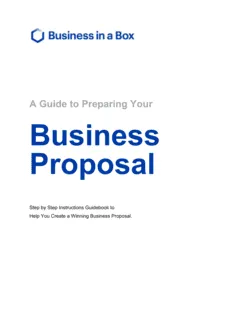Business Proposals Templates
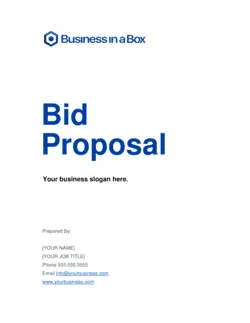
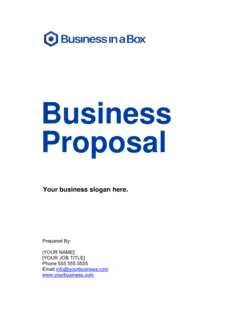
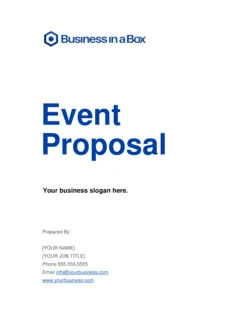
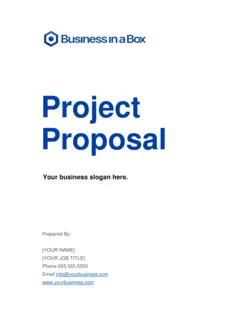
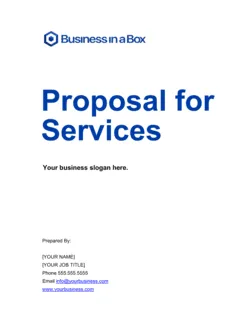
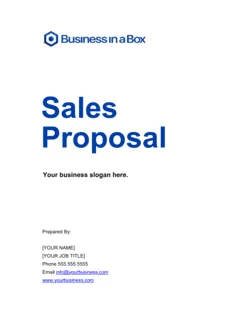
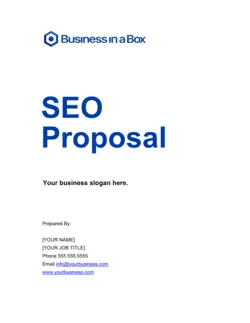
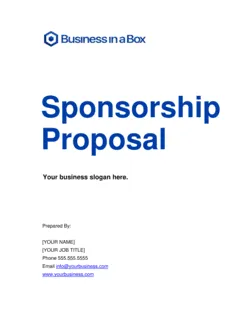
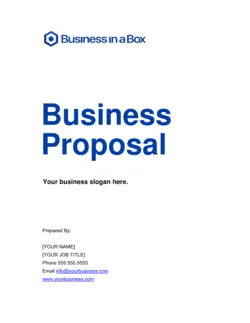
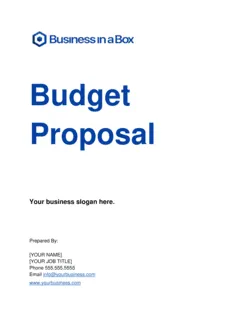
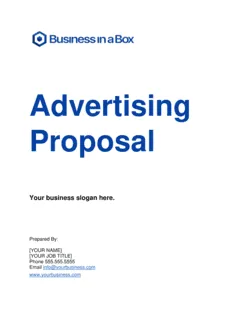
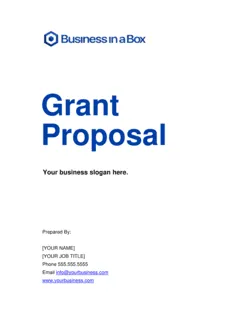
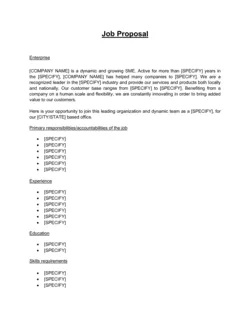
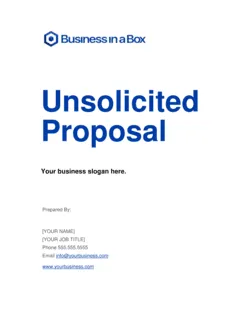
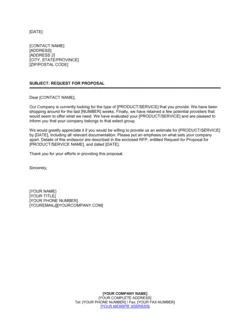
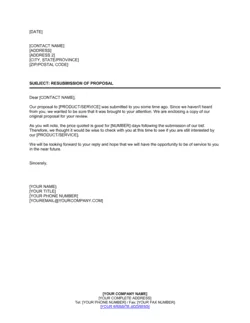
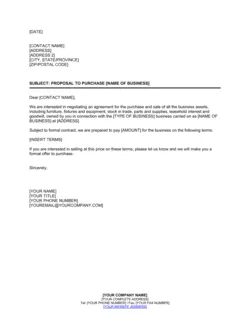
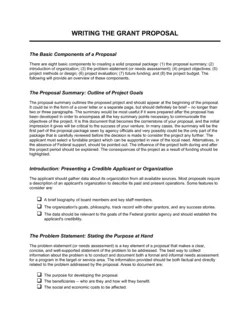
Business Proposals: A Comprehensive Guide
Do you ever dream of swimming with big sharks?
Your business is like a ship in the ocean of the marketplace.
A guide can help you navigate this marketplace and successfully steer your ship. The guide being referred to here is the Business Proposal Category offered by Business-in-a-Box. This toolkit can help you stay afloat in the tidal waves of the competitive marketplace, and gain clients for the long-term.
You may have thought to yourself that writing a business proposal is not worth your time, and that you can succeed solely on solid skills, great timing, entrepreneurial drive, and some luck. Truthfully, however, you and your business are more likely to succeed with a business proposal. A business proposal is a document designed to obtain new clients – they work as the lifeblood for many small businesses. Business proposals provide you with a clear guide to achieve more clients, get more of your ideal clients, and retain clients for the long-term. Your business proposal will help prove to potential customers that they can trust you.
While a business proposal is one of the most important parts of achieving business growth, many businesses struggle to create clear and alluring proposals that convince new customers to render their services or purchase their products.
Many businesses solely rely upon casual conversations, in most cases, this is not enough to provide businesses with the growth or client-base that they seek. You are more likely to grow your business, however, by providing potential customers with a formal document that addresses any potential concerns they may have and convince them to give your company a chance to shine.
The time has come for you to become a little more creative, think smarter, and create your own business proposal. Follow this comprehensive guide about business proposals – that provides key concepts and sections that are guaranteed to change your life forever – to create a winning business proposal.
Key Concepts:
First and foremost, your business proposal should convince even yourself that your idea makes sense – this is extremely important as your money, time, and efforts are on the line.
For many in the initial stages of creating a business, a proposal is the first step in determining whether starting a business is right for them.
A solid business proposal is like a blueprint for a successful business. It should flesh out strategic plans, marketing, development, and sales objectives.
- At a minimum, a good business proposal should:
- Be as logical and objective as possible
- Serve as a guide to the prospective business operations
- Communicate the vision and purpose of the company
- Create a foundation for a financial business proposal
Types of Business Proposals
A business proposal is a document that is purposefully written to land a project or a job.
It is usually sent to another company or a prospective client to provide a brief introduction to your services and professional features as a seller.
Business proposals have also been known to foster a rich relationship between companies and strengthen their cooperation.
There are three types of business proposals you can utilize, outlined in detail below.
1) Formally solicited business proposals:
In many organizations, formally solicited business proposals are written in response to requirements from the buyer. The specific requirements of a formally solicited business proposal include the following:
- Request for Proposal (RFP) The RFP provides further information about the offer the client is seeking, and helps clients ensure that the seller will be able to fulfill their specific demands and needs. It also may contain evaluation criteria put forward by the client. Many RFPs are made by the clients when available services and products do not meet their specific requirements.
- Request for Quotation (RFQ) The RFQ is issued by the customer when there is a need for a larger quantity of goods. In this case, prices are not the only thing to consider. Other services, including time of delivery, commodities, and quality of service, also matter to the customer. An effective business proposal might lead the seller to gain a big project.
- Invitation for Bid (IFB) When a prospective customer needs a service, such as construction, the IFB or Bid proposal is issued by a competing business to obtain the business of the customer. The primary goal of the customer in issuing an IFB is to check the prices – while quality of service is highly important in the instance of the RFQ, the prices may have a greater impact on the acceptance of the IFB.
- Request for Information (RFI) The RFI is issued to specify information about the available services, products, and sellers. Its main purpose is to view the marketing intelligence and lead to the final settlement of a business deal. Sellers should take the RFI seriously and carefully complete the requirements.
2) Informally solicited business proposals:
Informally solicited business proposals are one of the most crucial parts of the business proposal category, as they act as a conversation piece between a seller and a client.
The informally solicited business proposal is also known as a ‘sole purpose proposal’ since it does not contain any requirements – a short meeting is usually enough to secure the deal.
3) Unsolicited business proposals:
Unsolicited business proposals are like a marketing booklet that contain all the essential information about the needs of a seller. In this type of proposal – also known as a ‘giveaway’ or ‘leave behind’ proposal – there is no direct connection between the buyer and seller. The main reason for issuing an unsolicited business proposal is to increase the chances of sales.
Business Proposal Template Categories
While not every business needs to have a successful business proposal, if you are a startup that plans to grow your operations and sales, it is highly recommended that you have a roadmap to guide the growth of your business.
Here is a list of business proposals that you can access through Business-in-a-Box to meet several of your business objectives:
- Sales proposals
- Project proposals
- Bid proposals
- Sponsorship proposals
- Grant proposals
- Proposal for services
- Job proposal
These are just a few of the business proposal templates you can get access to by simply clicking to download. You can then proceed with filling in the blanks! All the templates are 100% customizable and have a professional format to help you start, run, and grow your business.
Common Proposal Elements
The Idea
Effective business proposals are built around a great solution or idea. Your idea needs to be unique and meet the demands of the buyer.
While you may be able to present your normal service or product in the most interesting way in the document, your solution needs to stand out against the backdrop of the business proposal.
The idea must be highlighted in a way that it demonstrates your ability to anticipate the buyer’s needs and capacity to deliver an idea that they will simply have to consider.
Traditional Categories
While writing a business proposal using the template, you can be creative in many aspects of the business proposal.
However, there are traditional categories involved in a business proposal that should be adhered to since customers will expect to see information in a specific order – adhering to this order will help ensure your proposal is easy to read and provides the required content the customer will expect.
Each aspect of the proposal has its place and it is up to you to effectively use each category to highlight your service or product. Every category is a perfect chance to reinforce your passion to serve the buyer, your credibility, and the reason your solution is the best.
Professionalism
A professional looking and written document is a baseline requirement to achieve success. If your proposal lacks professionalism, you can guarantee immediate dismissal.
There should not be errors in grammar or spelling, and all information presented should be accurate, concise, and referenced.
All the information should be easy to find and relevant. If the document is available in hard copy form, then it should be printed on letterhead. If you are submitting the document in an electronic form, it should be in a file format that presents the document as intended – a great option is a portable document format (PDF) that will preserve the location and intended format of your document.
Style Writing Guidelines
Unless your prospective buyer requires you to complete an online form when writing and submitting your business proposal, you can tailor your business proposal as much as you like.
Consider these guidelines before submitting:
- Your proposal will appear more credible if it is written in the company’s coloring and logo
- Standard business writing often uses 12-point, Times New Roman font, and has 1-inch margins
- Number of all pages should be marked as confidential
- If you received an RFP from the buyer, then try to write in the same format and style as the RFP
- Always express your gratitude when a prospective buyer provides you with an RFP as it could be the start of a long-lasting business relationship
- If you met the prospect before writing a business proposal, then try to write in a style that is consistent with the conversation you had
- Avoid using the use of words or acronyms particular to your product, service or industry
- Never use humor as it can invite a casual or relaxed atmosphere in communications, and it could be misinterpreted as offensive
- Despite the importance of your business proposal, you should format it so it can be easily skimmed by using short paragraphs with titles and avoiding repetitive content
- Use graphs and tables to quickly depict numerical information
- If you are submitting your proposal online, make sure it can be read on a smartphone or small tablet
- You should limit your business proposals to the number of pages that your prospect can grasp within four to six minutes
- Write confidently but avoid any exaggeration as it can hurt your credibility
Benefits of Having a Business Proposal
There are many benefits you will obtain from writing a business proposal, even if you don’t need funding or are not trying to bring on more partners. Here are some of the benefits:
- Portraying a comprehensive overview of your business
- Obtaining capital funding for development measures
- Sharpening your focus on implementing strategies
- Broadening accountability
- Setting and working toward milestones
- Making use of metrics
- Maintaining proper oversight regulation of cash
Sign up to get access to the complete business proposals and discover over 2,000 templates in the Business-in-a-Box toolkit that will help you achieve greater business success.
